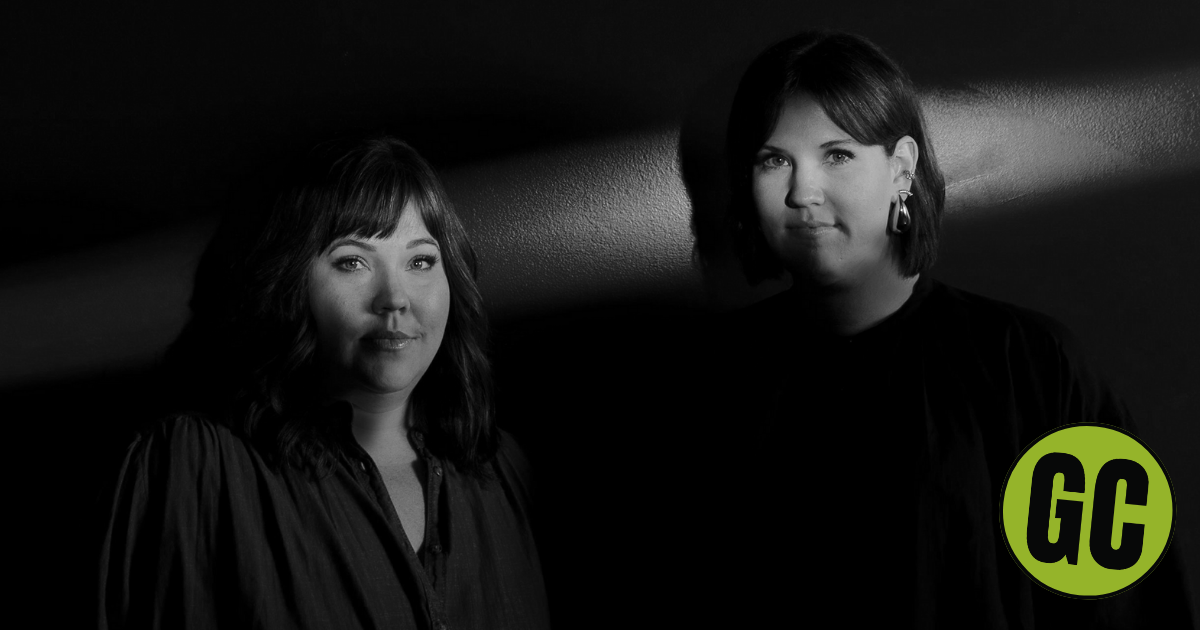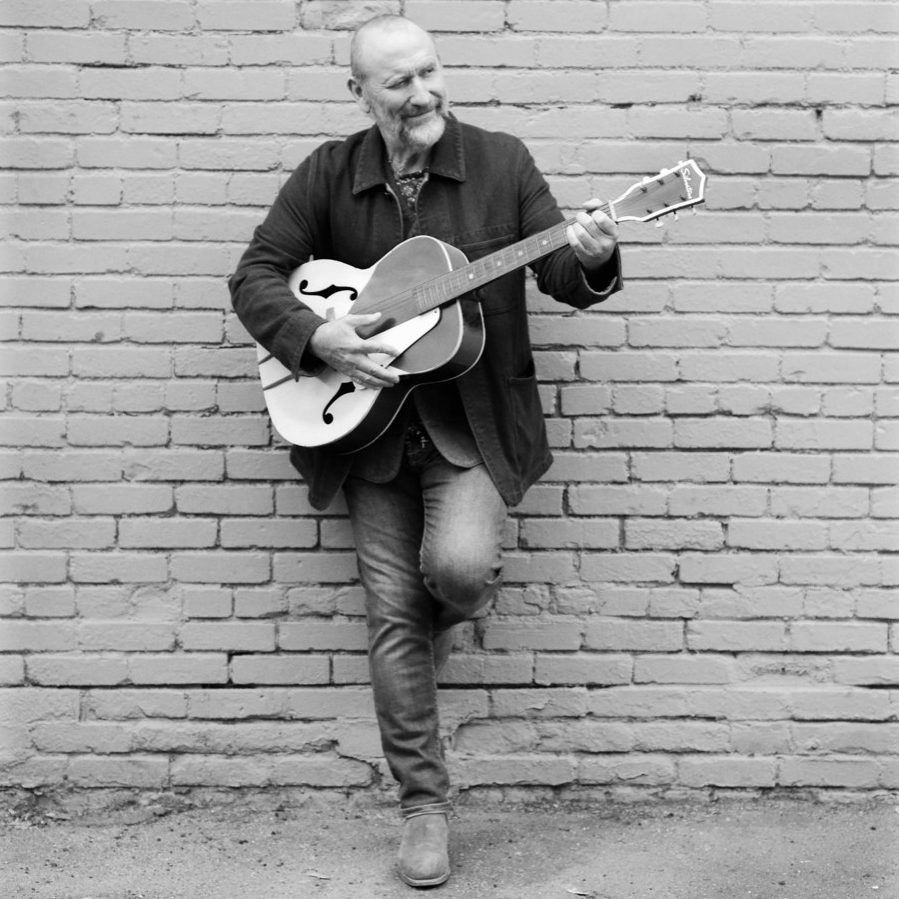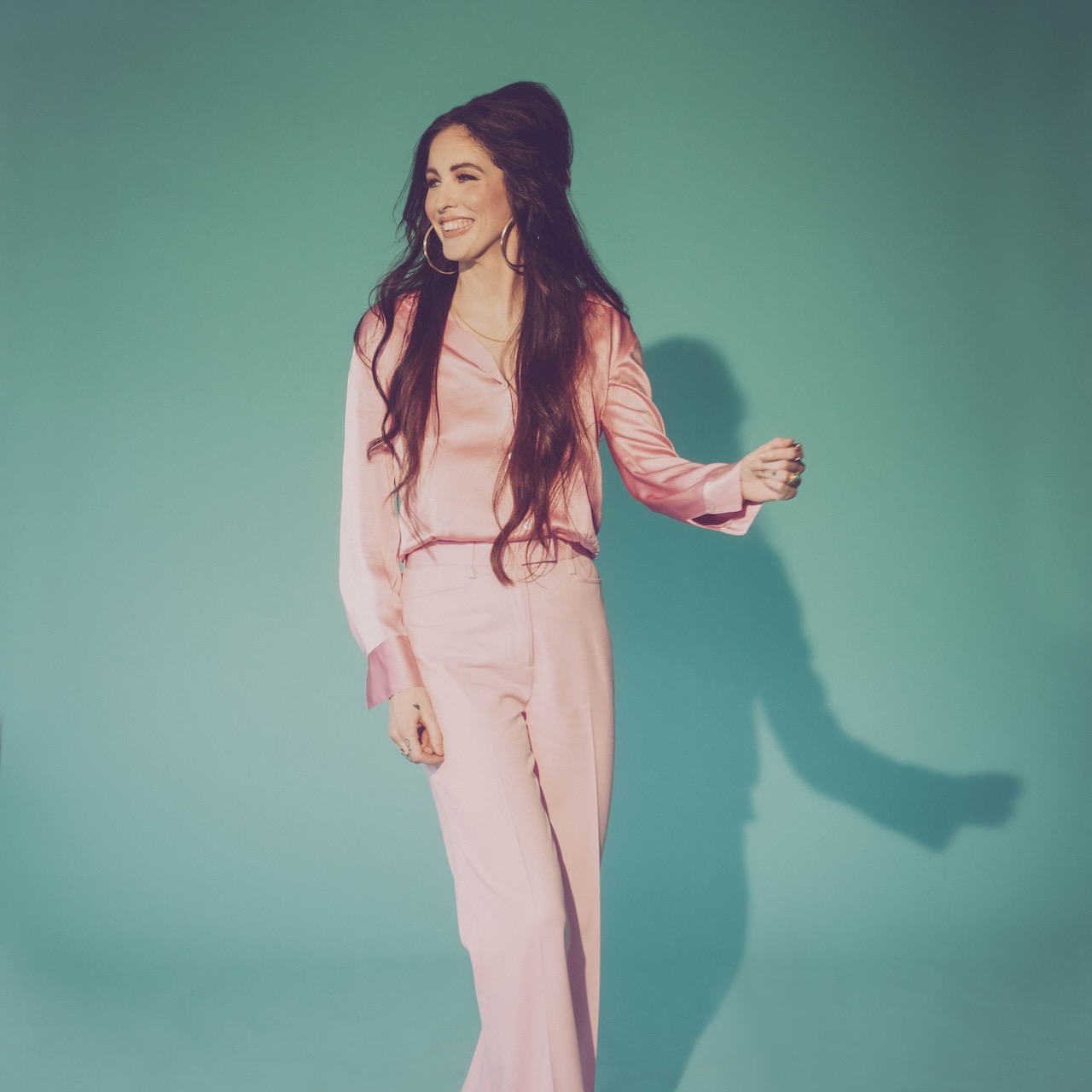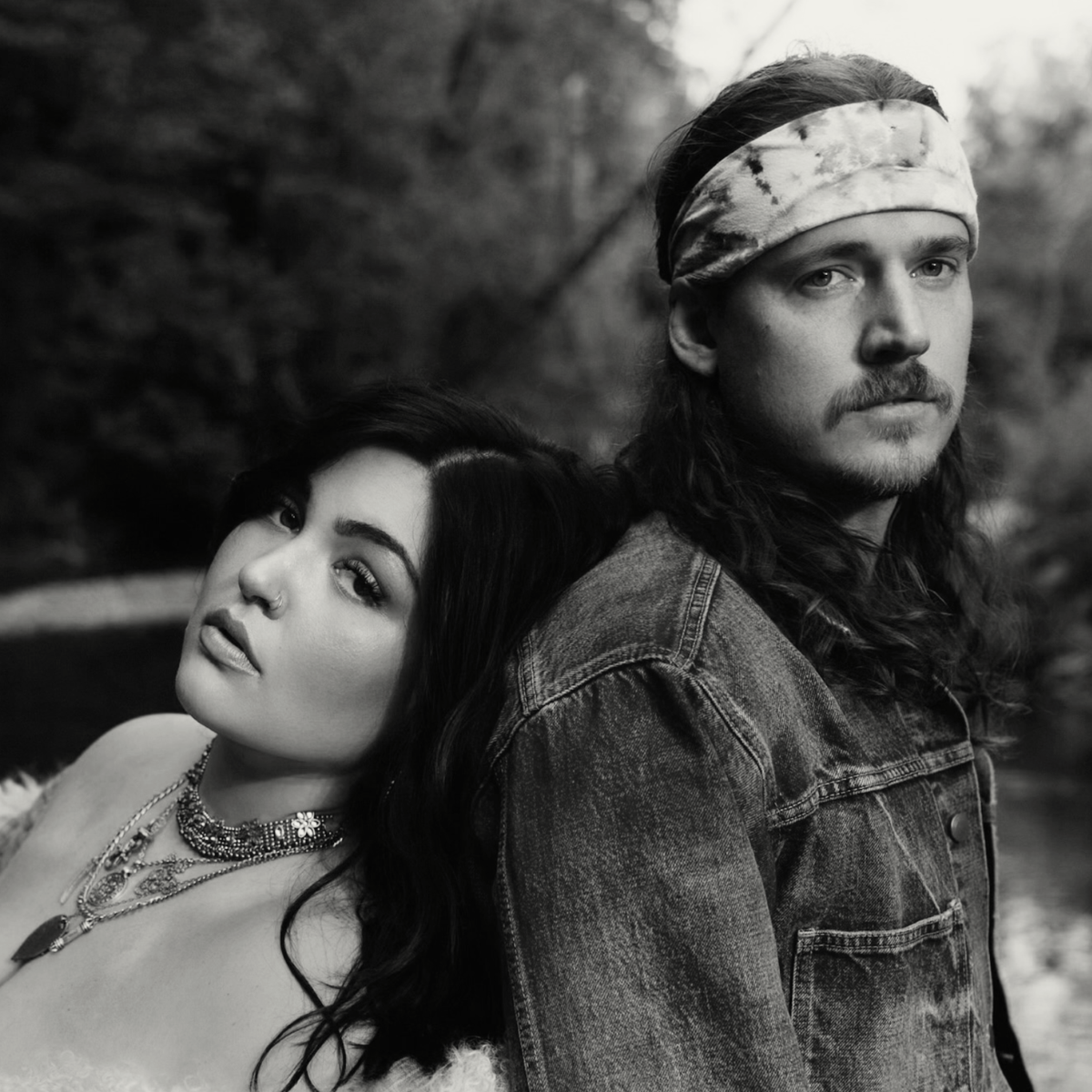(Editor’s Note: Sign up here to receive Good Country issues when they launch, direct to your email inbox via Substack.)
Based in northern Alabama with deep, organic ties to so many sounds and styles of the “Americana Music Triangle,” the Secret Sisters have built a musical brand on a distinct iteration of Southern gothic songwriting steeped in familial harmonies. Their music is grounded, but broad, specific but infinitely relatable.
Over the course of five studio albums released since 2010 – including 2020’s Grammy-nominated Saturn Return, which was produced by Brandi Carlile – the sisters, Laura Rogers and Lydia (Rogers) Slagle, have strayed very little from the sounds that first entranced audiences all across the South and around the country more than 14 years ago. Still, while they occupy a distinct and confident sonic aesthetic, their catalog never reads as tired, weary, or redundant. Mind, Man, Medicine, their latest record, was released on March 29 and while it listens like classic, iconoclastic Secret Sisters, it also registers as brand new, vital, and innovative.
It follows that two women proud to be Southerners and proud to be from Alabama would not feel limited by maintaining a stylistic brand that is rooted in one particular vein. At times, their songs remind of the Civil Wars but without affectation, of Shovels & Rope but with a more quiet and genuine anger, and of so many other Americana duos – Gillian & Dave, the Milk Carton Kids, War & Pierce – where the focal point is two voices and creatives in dialogue, collective music. But the indelible throughline, that centering “vein,” is simply being true to themselves.
Mind, Man, Medicine, among the siblings’ handful of releases, all at once feels like a comforting and cozy continuation of everything we love about the Secret Sisters rooted in northern Alabama, while also demonstrating the dawn of a new era. In our conversation with Laura and Lydia, we chat about the distinctions between style and redundancies, about compassion and community, about grounding and intention. Throughout, it’s clear that the Secret Sisters know exactly who they are, how they sound, and why they do what they do – even, if not especially, when each of those truths becomes clouded by the intricacies and complications of life.
I wanted to start by asking you about your specific brand of country and Americana. You have always made music that’s mindful, connected to the earth, and connected to your community. It often feels a little witchy and a little gothic, but it also feels like musically wandering down a winding garden path.
That style, that y’all have had present in all of your albums, it feels like it’s so “in” right now. From the new Kacey Musgraves album, Deeper Well, to Beyoncé’s Cowboy Carter, there are so many touches in country today that seem like something y’all have been doing for more than a decade. I wanted to see how you felt about this current landscape of Americana and country and how you feel your music relates to or fits into the constellation of this ongoing trend?
Laura Rogers: I have noticed that trend in a lot of ways. It seems like there are artists who are even more successful than we are who reach this point where, like you said, they reground or they just tap into something that’s maybe [been] suppressed by the other music that they’ve made. I don’t necessarily think that that’s a bad thing. I think that every artist has his or her own evolution, as far as what inspires them, whether it’s what they’re listening to or what they’re feeling or just what they want to sing. Some people don’t want to [tap] into their history or their community or their roots in any way.
I can understand that and sympathize with that, it’s just that’s who we are. It isn’t a trend for us. There’s no marketing scheme behind what we’re doing. I’m not implying that other artists who are doing that are just doing it for the moment, but for us, it’s always been [that] we don’t really know any other kind of music to play other than what you hear.
I don’t even know if it’s an intentional mindset. We want to be grounded and rooted and pay tribute to where we’re from. I don’t know if that’s like a conscious decision that we make. I think it just kind of happens naturally for us.
I know what it’s like to go through a journey of growing up and reconnecting to where you’re from and appreciating your history. I think it takes a minute sometimes, as an artist and a writer, to go back to that and see it as a good thing. Maybe other artists who are doing that, it’s probably a sincere moment in their life where they’ve reached a point of, “Hey, I want to go back to something that feels a little more like me.” I love that chapter of certain artists’ careers as much as I love the ones that maybe aren’t as rootsy and connected.
Lydia Slagle: I feel like some of that might be due to the pandemic. I might be taking liberties by saying that, but we were just home for so long and I think that probably grounded a lot of people in that way and made people get more in touch with their roots, musically.
I think you’re right. And you’ve both immediately grabbed onto the thread that I was pulling here, which is that there’s this trajectory that artists really enjoy bringing into their own art of “going back to basics.”
From the beginning of y’all’s career, from the first album, it seems like you always started “back” at the basics. I think what’s so interesting about that is how it never seems limiting to y’all. It feels like there’s always an entire universe for you to explore, even while you’re still remaining so close to that home base. You continue to showcase this sense of grounding and rootedness, highlighting where you’re from and who you are, but there’s still so much to explore.
LS: I think we can’t take credit for a lot of that, because we have had a lot of really great collaborators over the years.
We’ve had really good co-writers and great producers who are willing to stretch our limits of what we knew we were capable of. I think some of it is just our general involvement as artists, but a lot of it is who we work with and the people who play the instruments on the records and who produces them.
LR: I don’t know how Lydia feels, I’m sure she probably feels this to a degree, but it’s an insecurity of mine. I listen to other artists and I think, “Oh, if I could just write a song like that one.” I’m constantly doing that terrible thing that humans do, where I compare what I’m capable of producing to what everyone else is currently producing.
I’m so hard on myself about just wishing that I were better, you know? It’s nice to hear that, even after five records of writing music, that what we [make] is still the essence of who we are, but it isn’t overdone. I think that the fear of mine is like, how many more albums can we do before we have to venture into a crazy genre that we’ve never done before to keep people interested? [Laughs]
Thankfully, five albums in, it seems like people are not weary of what we do. But that is a total insecurity of mine, I hear so many songs and I think, “Man, I’m never going to be able to do that…” But then I also realize that there are people who hear our songs and think that they are works of art in ways that I think that was just a Tuesday afternoon!
LS: It’s also a struggle for me, but when I think of my favorite artists, I don’t get weary of the same stuff. I think of Gillian Welch and Dave Rawlings, they don’t really deviate from their original sound and it is just as fresh and exciting for me. Hopefully some people can see our music in the same way.
I think that if we were to just derail and do something completely different, I’m sure that would be exciting, but I’m also sure there would be a part of us that would be like, “What are we doing? What are we trying to prove?” I don’t even know how to describe it, but it would be very hard for us. So, we do what we know and what we like and hopefully people stay on board.
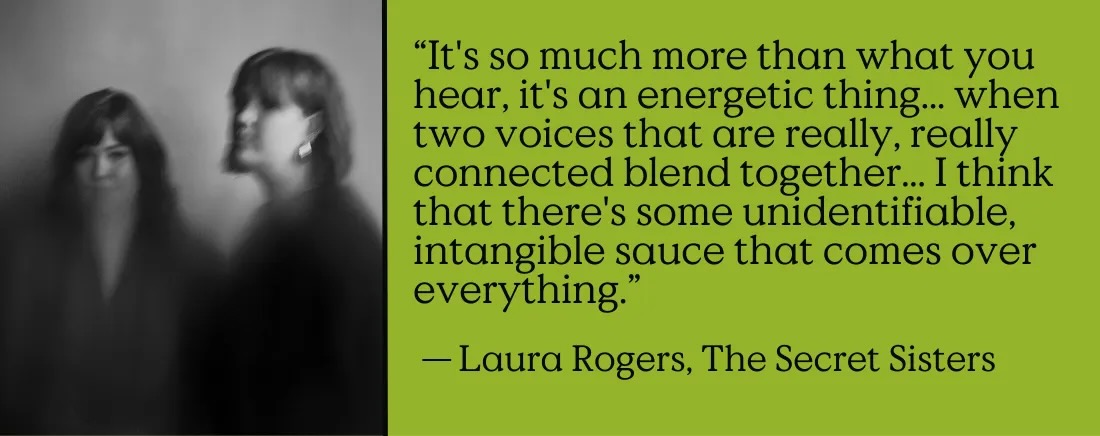
LR: I do think a huge part of it [is that] we’ve had multiple people who have produced things for us and songwriters that we’ve worked with kind of reassure us in this. But, any time we decide to do anything that’s maybe a little bit out of the box for us and that kind of pushes our limits, they always remind us, “What you are is not the sound that you work within, it’s your harmonies together and it’s the way that your voices blend.”
I do think that anytime I feel nervous about new territory or repetitive territory, I just remind myself we are two sisters who grew up singing together, who harmonize together, and for some reason, people really love the way that our voices blend. That seems to be the crux of it. It’s great if that’s framed with interesting sonic landscapes or up-tempo, energetic songs, or sad minor chords. All of those things are interesting, but at the end of the day, if you don’t have that two-part sibling harmony that we are known for– I do think our sound hinges on that, to me.
I don’t ever foresee us having a record where only one of us sings. Period. There’s always going to be both of us, even if we’re both singing in unison together. There’s just something about that. And it’s so much more than what you hear, it’s an energetic thing. You can hear the shared chemistry and energy that happens when two voices that are really, really connected blend together. It doesn’t have to be people who are related to one another, but I think that there’s some unidentifiable, intangible sauce that comes over everything. It’s almost like hypnosis or something.
I think probably every artist that we admire would be like, “Yeah, I have days where I really don’t know what my sound is. I don’t know what my genre is. I don’t know what my style is. I just make it.”
I’m glad that you mention singing in unison, because it was something that really jumped out at me from this record. There’s some tasty ass unison singing on this record! What’s so interesting to me is that you can hear the space in the room between your mouths and the mics – and you can hear that space almost more than the space between your voices, since you’re singing in unison.
LR: Yeah, unison’s hard. I would say for me unison is harder than harmony, getting that blend and making sure that your voices are not rubbing against each other in a way that’s kind of cringy.
LS: We get some of that on the road, I feel like. When we’re performing live and we do unison, there are times when one of us is just maybe a tad sharp or a tad flat and it does not sound like good tasty unison. So finding that perfect sweet spot is a little trickier than you might think.
Shifting gears, I love how y’all always have such a strong sense of place in your music, drawing from Muscle Shoals, drawing from the “Americana Music Triangle.” And I have been obsessed recently with the idea that music always exists in a space, in relationship with place. It feels a bit “forest for the trees” to say it, but without air we wouldn’t have music – without sound waves, without air, without space.
I thought it was so perfect that you start the album with “Space,” it feels like a beautiful, spiritual moment where you’re asking folks to enter a space with you. You’re holding this space with your voices and with your songs, and inviting all of us to enter that space with you.
So I wanted to ask you about that song, writing it, but also deciding that it would be the first in the sequence.
LR: I didn’t even think about that at all! This is what I love about making records, there are always things that you discover about it after it’s out and you’re like, “Oh, I didn’t even consciously decide to do that.”
But it makes so much sense. I never thought about having that song as the opening track of the record and it being an invitation of, “This is a space for you to enter and and it’s a safe place for you to feel.” I never thought about that and I love that you discovered that for us.
LS: I don’t feel like that was so much a conscious decision to frame it as this invitation into our record, but I love that perspective.
As far as sequencing, I think that it was more the production of that song and the sound that we approached it with that was pretty different for us. So we loved starting the record with a completely different sound for us. To let people know this is a little bit different from what you’ve heard in the past.
LR: We wrote that song with Jessie Baylin and Daniel Tashian, so when we got to Daniel’s studio to write with him, I just remember there being instruments all over the floor, all over the walls. It literally was like, come in and pick what you want to use. I’m not an adventurous instrumentalist at all, but he picked up this little tiny guitar that we plugged into this amp and we put this crazy effect on it. We just started strumming on it, and that was kind of the beginning of the song. I don’t even really remember what started the inspiration for that song, but I really feel like, timing-wise, where it landed was just after we had started writing with people after the pandemic. It was finally safe enough to sit in a co-writing situation in person. Coming from that place of the weird and divisive time of COVID, two songs, “Space” and “If The World Was a House,” were really just trying to capture that feeling that we gotta start being better to each other.
I think that there’s a quality in this album that you’re opening a space, you’re inviting folks into it, and then you’re kind of pointing out, “Hey, if the world was a house and that house was on fire, we would all do something about it, right?” I’m not sure if that message would feel as compassionate or as kind or as open if it didn’t come after this sense that you’re inviting us in, we’re on the same level, we’re in this space together. Then you can talk about these ideas and these songs that are challenging us to be in community, to be with each other, to make a better world. It doesn’t feel like you’re preaching.
LS: I hope people listen from that viewpoint. When we wrote that song with Ruston Kelly in Nashville, I think it was the beginning of 2022 when it was just starting to die down a little bit, but people were still very divided on COVID. It was ever present in our minds, so whenever we started writing “If The World Was a House” that day, it just came out. We could not get the words out quickly enough. I think it could have been a 10 minute song if we let it.
LR: “If The World Was a House,” now that I listen to it and process it as a finished product, I just keep thinking about how if you were passing by a neighborhood and there was a literal home on fire, it would not matter to you if they were Republican or Democrat or gay or straight or Christian or atheist or man or woman. It would not matter, you would do something! You would run in, you would call for help. You would make an effort, right?
When I feel the most dismal and depressed about humankind, I keep coming back to the thought that, if it’s really a matter of life and death, you’re going to step up for people. I do truly believe that most people have that sense of, “I got to do something.” I try to remember that it doesn’t matter that we have differences. The differences are always going to be there, but at the end of the day, would you fight for someone? Would you fight for someone who is different from you?
I like to believe that most people would. Once all the dust settles, of all the things that we bicker and separate ourselves over, I really like to think that everybody has a general sense of kindness that they could tap into. Maybe that’s a little naively optimistic, but…
I think that that message is so impactful coming from y’all, knowing that you place yourselves purposefully in your community in Alabama and in these parts of the country that people tend to write off as being “backwards” and not being capable of nuance. The South and rural places are always a scapegoat for the entire country and all of its problems. So, I think that it makes the message in your music so much more impactful, knowing that. You don’t see yourselves as outliers in the place that you’re from, you don’t see yourselves as exceptions to the rule or like you’re the only ones who think like this, who are “enlightened.”
LS: I think there’s more of us than people realize, there’s a lot of us in Alabama and Tennessee and Mississippi – we’re not the only ones. Hopefully we can represent that community of people a little bit better.
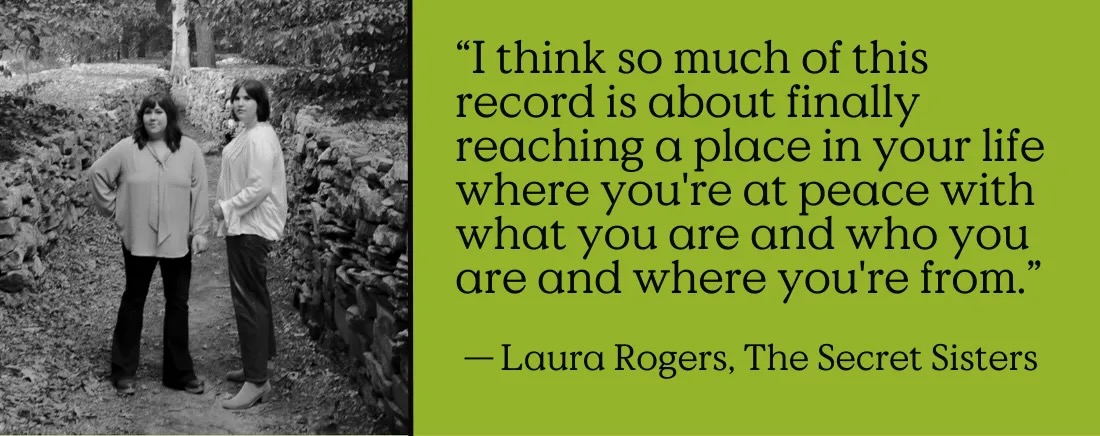
Another song I wanted to ask you about before we close is “Planted.” I love birdwatching, I love gardening and I feel like a lesson I learned – and so many of us learned – from COVID is that we need to have roots. We need to have nourishment and we need to be grounded, planted. I hear that song and I hear the love in it – the romantic partnership and the life partnership – but I also hear so much more. I love that I had already written down in my notes that this album is so “rooted” and then I got to “Planted” and I was like, literally!
LS: I think I wrote Planted in like 2015, a while back, and it had been sitting in my GarageBand for years and years. I think that when I first wrote it, it was about a year after I got married and my husband and I were going through a season where we were both traveling a lot, we’re both in artistic careers. So we were sort of rubbing up against each other, being like, “Whose job is more important? Which is more impactful?” I don’t know, we finally ended up in a place where we were like, it doesn’t matter. We’re in this together. We’re rooted together. It doesn’t matter if somebody is on a different trajectory, we’re in this thing together. I sort of tried to approach that song with that perspective, but yeah, I never thought that it would make it onto the record eight years later.
LR: There are songs you have for years and years that you think maybe there’s just not a place for it, and then all of a sudden it’s like, “This is the place!”
I feel like that song is very true to this record, even though it was written years ago about a romantic relationship, you’re completely right about it fitting into the narrative of this record, because I think so much of this record is about finally reaching a place in your life where you’re at peace with what you are and who you are and where you’re from. And, what your history is and what your sound is.
We have reached this point, hallelujah, where we are like, “What you see is what you get.” We are who we are and all we can really offer the world is a healthy, whole, self-satisfied version of ourselves.
We did the thing in our twenties where we said yes to every show opportunity, every appearance we could make, we said yes to everything. It was good in a lot of ways, but it was also just soul sucking, you know? I think one thing that I’ve really struggled with over the years is how I never thought that I was gonna be a professional musician. I’ve always just loved music for its therapy purposes. So it’s been hard for me to have my favorite hobby become a livelihood, because it feels like a lot of times the magic strips away and the comfort mechanism isn’t there anymore, because it’s your job. It’s like, “Well, this is what I do every day. This is how I keep the lights on.” And then it’s not what I want to do after hours. That’s been a hard thing for me to process.
I think that this record, in a nutshell for me, is about coming to a place of still loving what I do. I still want to make art that matters to me and that people respond to, but I do not have to kill myself in the process.
If I want to be home for someone’s birthday, I can say no to [an opportunity] for that. And, I’m finally at a place where I know I can always make money. I can always find a way to make money. But if I am going to sacrifice being home to watch my kid walk across his pre-k graduation stage, that’s not a fair trade for me anymore. Whereas years ago, in my youth – and I guess you would call it maybe ignorance or just immaturity – I would trade those for things that really mattered. Now I realize what I’m going to look back on in my life when I’m an old lady is not, “Did I play every show? Did I fall in bed exhausted? Did I come home and completely dissociate from everything around me, because I was so overstimulated by life on the road?”
I feel so happy to be in a place where music feels healthy again, because sometimes I think it’s easy for it to not feel healthy.
Photo Credit: David McClister

